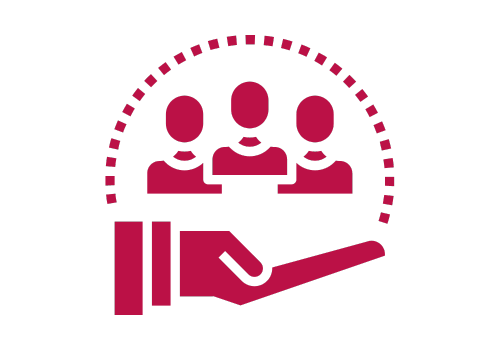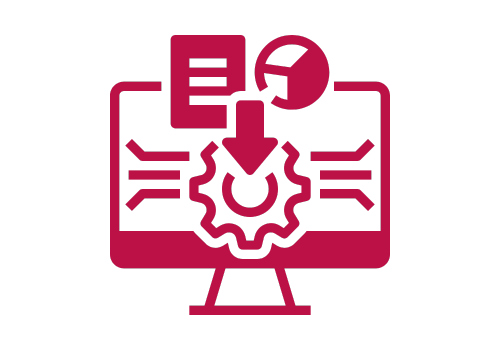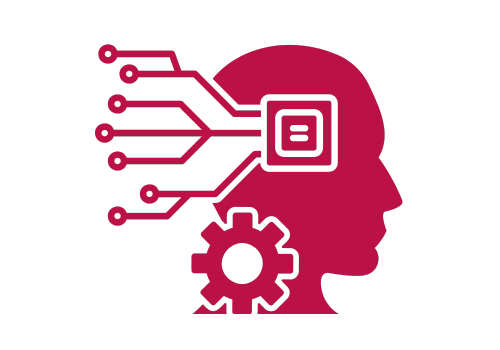AI Ethics Standards and Regulations
Navigating Ethical AI with Confidence
Why This Training?
In an era where AI solutions are driving transformative changes, the importance of ethically sound AI is paramount. Organizations are expected to not only deliver innovative solutions but also ensure they are ethically robust and compliant with international standards and regulations. Our workshop dives deep into influential AI ethics standards such as IEEE Ethically Aligned Design and ISO/IEC 23894:2020, positioning them within the context of the EU AI Act. Equip yourself to navigate the ethical landscape and ensure that your AI projects meet global benchmarks of responsible innovation.
Duration: 1 Day (8 hours), (online / virtual live session)

Who Should Attend?
AI Researchers and Developers seeking to integrate ethical practices in solution design.
Organizational Leaders aiming to ensure AI project compliance with international standards.
Organizational Leaders aiming to ensure AI project compliance with international standards.
See more
Compliance Officers and Legal Teams focusing on AI applications.
Ethics Officers and Consultants specializing in technology.
Any professional involved in the strategy, design, and implementation of AI solutions.
Ethics Officers and Consultants specializing in technology.
Any professional involved in the strategy, design, and implementation of AI solutions.

Course Highlights
Comprehensive exploration of IEEE Ethically Aligned Design and ISO/IEC 23894:2020.
Detailed walkthrough of the EU AI Act and its synergies with global standards.
Detailed walkthrough of the EU AI Act and its synergies with global standards.
See more
Practical case studies showcasing real-world application of ethics standards.
Interactive activities and workshops aimed at solidifying understanding and application.
Future forecasting on the evolution of AI ethics guidelines and regulatory shifts.
Interactive activities and workshops aimed at solidifying understanding and application.
Future forecasting on the evolution of AI ethics guidelines and regulatory shifts.

Pre-requisites
Basic understanding of artificial intelligence concepts.
Familiarity with AI project lifecycle and development stages is beneficial.
Prior knowledge of AI ethics or regulations is not mandatory but could be advantageous.
Familiarity with AI project lifecycle and development stages is beneficial.
Prior knowledge of AI ethics or regulations is not mandatory but could be advantageous.
Training Materials Needed by Participants
A laptop or tablet with internet access for online resources and interactive sessions.
A digital or physical notebook for note-taking and workshop exercises.
Pre-workshop reading material (will be provided ahead of the training date) to ensure a foundational understanding of key concepts.
Write your awesome label here.
Training Content
AI Ethics Standards and Regulations
Objective: Equip attendees with a comprehensive understanding of prominent AI ethics standards and their alignment with the EU AI Act. The workshop will delve into the intricacies of guidelines such as the IEEE Ethically Aligned Design and ISO/IEC 23894:2020, ensuring participants can apply them practically in AI projects.
Session 1: Foundations of AI Ethics Standards
- Introduction to the AI Ethics Landscape: Why standards matter.
- Overview of Key AI Ethics Guidelines: A snapshot of influential standards.
- The Role of Regulations: Differentiating between standards and legal mandates.
Session 2: Diving Deep into IEEE Ethically Aligned Design
- Origins and Evolution: The context of IEEE's initiative.
- Key Principles and Recommendations: A detailed walkthrough.
- Case Study: Implementing IEEE guidelines in real-world AI projects.
Session 3: Unpacking ISO/IEC 23894:2020
- Understanding the Scope: What ISO/IEC 23894:2020 covers.
- Technical and Ethical Guidelines: Exploring its dual nature.
- Interactive Activity: Aligning AI projects with ISO/IEC 23894:2020 recommendations.
Session 4: The EU AI Act: A Central Pillar in AI Ethics
- Key Provisions and Relevance: A thorough overview of the Act.
- Synergies with Global Standards: Mapping the EU AI Act with IEEE and ISO/IEC guidelines.
- Workshop: Evaluating an AI project for EU AI Act compliance.
Session 5: Operationalizing AI Ethics in Development
- Translating Standards to Practices: Bridging the theory-practice gap.
- Tools and Frameworks: Available resources to aid compliance.
- Group Activity: Designing an AI ethics compliance roadmap for a hypothetical project.
Session 6: Navigating Conflicts and Overlaps in Standards
- Identifying Potential Misalignments: Where standards may diverge.
- Resolution Strategies: Techniques for reconciling conflicting guidelines.
- Case Analysis: Dissecting a complex, multi-standard AI project scenario.
Session 7: Future of AI Ethics Standards and Regulations
- Emerging Trends: What’s on the horizon for AI ethics guidelines?
- Predicting Regulatory Shifts: Forecasting the evolution of the EU AI Act and global standards.
- Roundtable Discussion: Sharing insights on future-proofing AI initiatives.
Session 8: Wrapping Up and Looking Forward
- Recap of the Day: Synthesizing insights from various standards.
- Open Forum Q&A: Addressing queries, clarifications, and deep dives.
- Taking the Next Steps: Resources and recommendations for continuous alignment with AI ethics standards.
WOMEN AI ACADEMY
Women AI Academy is a gender-equality and technology driven learning & development organization
Site Terms & Info
ETHOS AI Training & Consulting GmbH
Weihenstephanerstr.1281673
Munich-Germany
We are driven by the vision of making AI both ethical and accessible to everyone
Copyright © 2024 Brought to you by Ethos ai AI Training & Consultancy GmbH
Ali Hessami is currently the Director of R&D and Innovation at Vega Systems, London, UK. He has an extensive track record in systems assurance and safety, security, sustainability, knowledge assessment/management methodologies. He has a background in the design and development of advanced control systems for business and safety-critical industrial applications.
Hessami represents the UK on the European Committee for Electrotechnical Standardization (CENELEC) & International Electrotechnical Commission (IEC) – safety systems, hardware & software standards committees. He was appointed by CENELEC as convener of several Working Groups for review of EN50128 Safety-Critical Software Standard and update and restructuring of the software, hardware, and system safety standards in CENELEC.
Ali is also a member of Cyber Security Standardisation SGA16, SG24, and WG26 Groups and started and chairs the IEEE Special Interest Group in Humanitarian Technologies and the Systems Council Chapters in the UK and Ireland Section. In 2017 Ali joined the IEEE Standards Association (SA), initially as a committee member for the new landmark IEEE 7000 standard focused on “Addressing Ethical Concerns in System Design.” He was subsequently appointed as the Technical Editor and later the Chair of P7000 working group. In November 2018, he was appointed as the VC and Process Architect of the IEEE’s global Ethics Certification Programme for Autonomous & Intelligent Systems (ECPAIS).
Trish advises and trains organisations internationally on Responsible AI (AI/data ethics, policy, governance), and Corporate Digital Responsibility.
Patricia has 20 years’ experience as a lawyer in data, technology and regulatory/government affairs and is a registered Solicitor in England and Wales, and the Republic of Ireland. She has authored and edited several works on law and regulation, policy, ethics, and AI.
She is an expert advisor on the Ethics Committee to the UK’s Digital Catapult Machine Intelligence Garage working with AI startups, is a Maestro (a title only given to 3 people in the world) and expert advisor “Maestro” on the IEEE’s CertifAIEd (previously known as ECPAIS) ethical certification panel, sits on IEEE’s P7003 (algorithmic bias)/P2247.4 (adaptive instructional systems)/P7010.1 (AI and ESG/UN SDGS) standards programmes, is a ForHumanity Fellow working on Independent Audit of AI Systems, is Chair of the Society for Computers and Law, and is a non-exec director on the Board of iTechlaw and on the Board of Women Leading in AI. Until 2021, Patricia was on the RSA’s online harms advisory panel, whose work contributed to the UK’s Online Safety Bill.
Trish is also a linguist and speaks fluently English, French, and German.
In 2021, Patricia was listed on the 100 Brilliant Women in AI Ethics™ and named on Computer Weekly’s longlist as one of the Most Influential Women in UK Technology in 2021.

